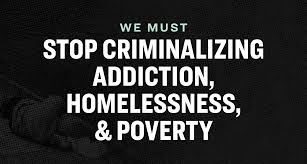Vidya Sethuraman
India Post News Service
Crime in the U.S. peaked in the early 1990s, but has fallen 51 percent from 1993 to 2018, notwithstanding a couple of years with spikes in violent crime, according to FBI data. Preliminary figures indicate that law enforcement agencies throughout the nation showed an overall decrease of 3.1 percent in the number of violent crimes brought to their attention for the first 6 months of 2019 when compared with figures reported for the same time in 2018. The number of property crimes in the United States from January to June of 2019 dropped 5.6 percent when compared with data for the same time period in 2018. Property crime has also dropped by 54 percent in the past 25 years. Property crimes include burglary, larceny-theft, and motor vehicle theft.
But low-income urban cities, overwhelmingly populated by Black and Latin residents, continue to be over-policed. The coronavirus pandemic has torn through Black and Latino communities at disproportionately high rates, in part because so many are considered essential workers in agricultural fields, meatpacking plants, restaurants and hospitals across the country.
Former FBI agent Michael German, author of the report “Hidden in Plain Sight: Racism, White Supremacy, and Far-Right Militancy in Law Enforcement” released by the Brennan Center for Justice Aug. 27, said ample evidence exists of police officers being affiliated with white supremacist groups. Officers rarely face repercussions for such activity, claiming they are protected by the First Amendment, added German.
Dr. Dorothy Johnson-Speight, Founder and National Executive Director,Mothers In Charge,Inc. spoke about the need for police departments to reflect the community they are policing. “You can’t expect 83 percent of white men to understand the issues of minority communities.” She said some of the funds currently allocated to policing could instead be used to fund mental health and behavioral health services, which could be implemented in many situations in which police are currently deployed.
Right now, it is imperative for non-Black and non – Latino communities to both empathize with Black and Latino people and also recognize that it is in our material interest to fundamentally change policing in this country.







